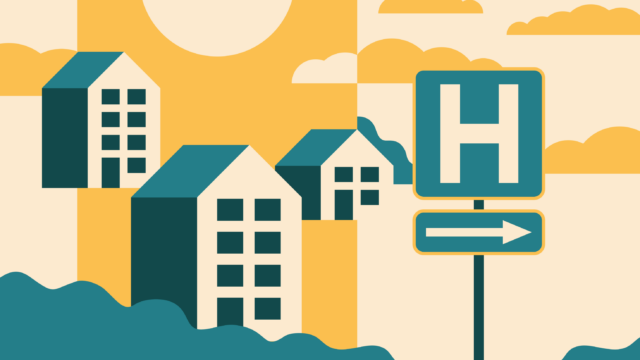5 Healthcare TED Talks That Inspire Us

TED Talks are the pinnacle of possibility when it comes to solving the world’s biggest problems. Overcoming the challenges of healthcare can feel daunting, but watching these talks fill us with energy and motivation. That’s why we put together a list of our favorite TED Talks that leave us feeling inspired and renewed in our mission to transform how people navigate the gaps between health care and social care.
Access to quality healthcare, loneliness, maternal health, and where a person lives are all top-of-mind challenges we’re working to impact every single day.
Illness is universal. But access to care is not.
The lessons, insights, and challenges discussed in these talks are deeply related to the Reema mission. These TED Talks inspire us to continue pushing forward and think differently about how to tackle healthcare’s biggest challenges. We hope they spark something for you, too.
#1: Where You Live Shouldn’t Determine IF You Live
Two extremely fitting talks both embody the theme of location, location, location. We included them both because where you live has never been more relevant to the care you receive.
Option 1: No one should die because they live too far from a doctor
In this talk, physician Raj Panjabi discusses his bold vision to bring health care to everyone, everywhere. He outlines the goals of the Community Health Academy, a global platform that aims to modernize how community health workers learn vital skills and bring care to the doorsteps of those who lack access.
Option 2: Your health depends on where you live
This is an oldie, but a goodie (and unfortunately, still extremely relevant). Originally recorded at TEDMED in 2010, Bill Davenhall dives into how where you live impacts your health as much as diet and genes do, but it’s not part of your medical records. He highlights how overlooked government geo-data (from local heart-attack rates to toxic dumpsite info) can mesh with mobile GPS apps to keep doctors in the loop, calling it “geo-medicine.”
#2: Overcoming Loneliness Through Community
You are not alone in your loneliness
Being open and vulnerable with your loneliness, sadness, and fear can help you find comfort and feel less alone, says writer and artist Jonny Sun. In an honest talk filled with his signature illustrations, Sun shares how telling stories about feeling like an outsider helped him tap into an unexpected community and find a tiny sliver of light in the darkness.
We appreciate this one because it shines a light on how critical community is to fostering a sense of belonging and impacts loneliness.
#3: Poverty & Climate Change: What it Means for Health
The Link Between Climate Change, Health & Poverty
For the poor and vulnerable, the health impacts of climate change are already here, says physician Cheryl Holder. Unseasonably hot temperatures, disease-carrying mosquitoes, and climate gentrification threaten those with existing health conditions, while wealthier people move to higher ground. In this impassioned talk, Holder proposes impactful ways clinicians can protect their patients from climate-related health challenges—and calls on doctors, politicians, and others to build a care system that incorporates economic and social justice.
#4: Maternal Health & Rising Mortality Rates
Maternal health is an important topic with so many nuances and challenges, we couldn’t pick just one to share.
Option 1: How the US medical community fails Black mothers
In the United States, Black women are nearly 300% more likely to die as a result of childbirth than white women. This moving talk by Wanda Irving explains how racism and bias in health care minimize and dismisses Black women’s pain—and makes a personal plea for leaders in the medical community to take steps towards reform.
Option 2: How to reduce maternal and newborn mortality to save our future
As an experienced gynecologist and obstetrician, Dr. Sadia Malick raises the very crucial issue of maternal healthcare, during and after pregnancy in this talk. She focuses on the causes of increasing rates of maternal and newborn mortality and the steps we can take immediately to reduce them.
#5: Refocusing the Role of Doctors
How do we heal medicine?
Doctor and writer Atul Gawande talks about how our medical systems have become broken. We know our doctors are capable of extraordinary things, but are losing their core focus: actually treating people. This talk explores the fundamental role of physicians and how stepping back and reflecting can lead to a reaffirmed view on what patients need: quality care.



